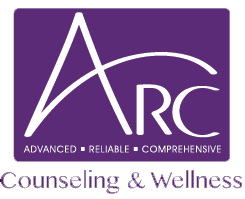Offering Helping Hands Through Life’s Obstacles
Infertility is a growing concern in the United States and the impact is not only physical but also emotional. If you are having difficulty conceiving, maintaining a pregnancy or have been receiving infertility treatment, you may be familiar with the emotional roller-coaster that often accompanies these experiences. Often times your friends, loved ones and providers are not. It is tremendously helpful to speak with someone who can offer support and expertise on such an important issue.
The emotional impact of infertility frequently results in:
* feelings of sadness, anxiety, anger or hopelessness
* difficulty making treatment decisions
* conflict or tension in relationships
* feeling isolated or purposefully isolating yourself
* waves of overwhelming and at times uncontrollable emotions
* difficulty being around pregnant women or babies
* feelings of emptiness or worthlessness
* difficulty communicating with family and friends
* significant change in appetite or sleep
* feeling a lack of control over yourself or your life
If you are able to identify with any of the above, you are not alone but you may benefit from extra support. Research has shown that the high levels of stress and distress experienced by fertility patients is comparable with those of patients with other serious and chronic medical conditions. High levels of stress not only adversely impact your physical and emotional health but can also impact the success of your fertility treatment. The body’s best chance at conceiving and delivering a healthy baby is to attend to your emotional and psychological health while following your physician’s treatment plan. Seeking emotional support from a trained professional who is knowledgeable in not only the psychological but also the medical and health aspects of infertility can be tremendously helpful.
Dr. Long has been dedicated to helping individuals and couples who are going through the infertility process as well as women with high risk pregnancies to relieve the emotional distress and physical symptoms (fatigue, headache, insomnia, abdominal pain) associated with these challenges. She has completed research exploring the different types of distress experience by infertility patients and has developed and implemented a model of care for infertility patients in a large medical setting. Her work with infertility patients incorporates a mind-body approach to wellness and she often works closely with medical providers when necessary to maximize the support patients receive.
Mind-body approaches to infertility have been shown to be effective in decreasing symptoms of distress, depression, anxiety, and anger. Additionally, patients attending mind-body programs while undergoing infertility treatment were 55% more likely to conceive than their peers. Mind-Body approaches work to compliment medical treatments and address the impact stress has on the body. It includes relaxation and mindfulness techniques, positive coping strategies, and social support. Mind-Body work can be completed in individual, couples, or group settings and each option is available with Dr. Long.
Individual:
Dr. Long will work with you in regards to the personal distress you have experienced which has either been caused or exacerbated by fertility challenges. You will receive education and coaching on Mind-Body Wellness tailored to your specific lifestyle and needs.
Couples:
Dr. Long will work with the couple to increase communication, as well as to explore and reduce the impact fertility challenges have had on the relationship. Mind-Body work will focus both on the individual and the couple so that each partner will know how to support the other in their efforts towards mind-body wellness for fertility.
Group:
Group sessions are offered in a basic process and support format as well as a comprehensive 9 week Mind-Body Wellness for Fertility program. Group settings provide an opportunity for peer support, increased learning, and attention to many of the issues that would be brought up in individual or couples sessions.


